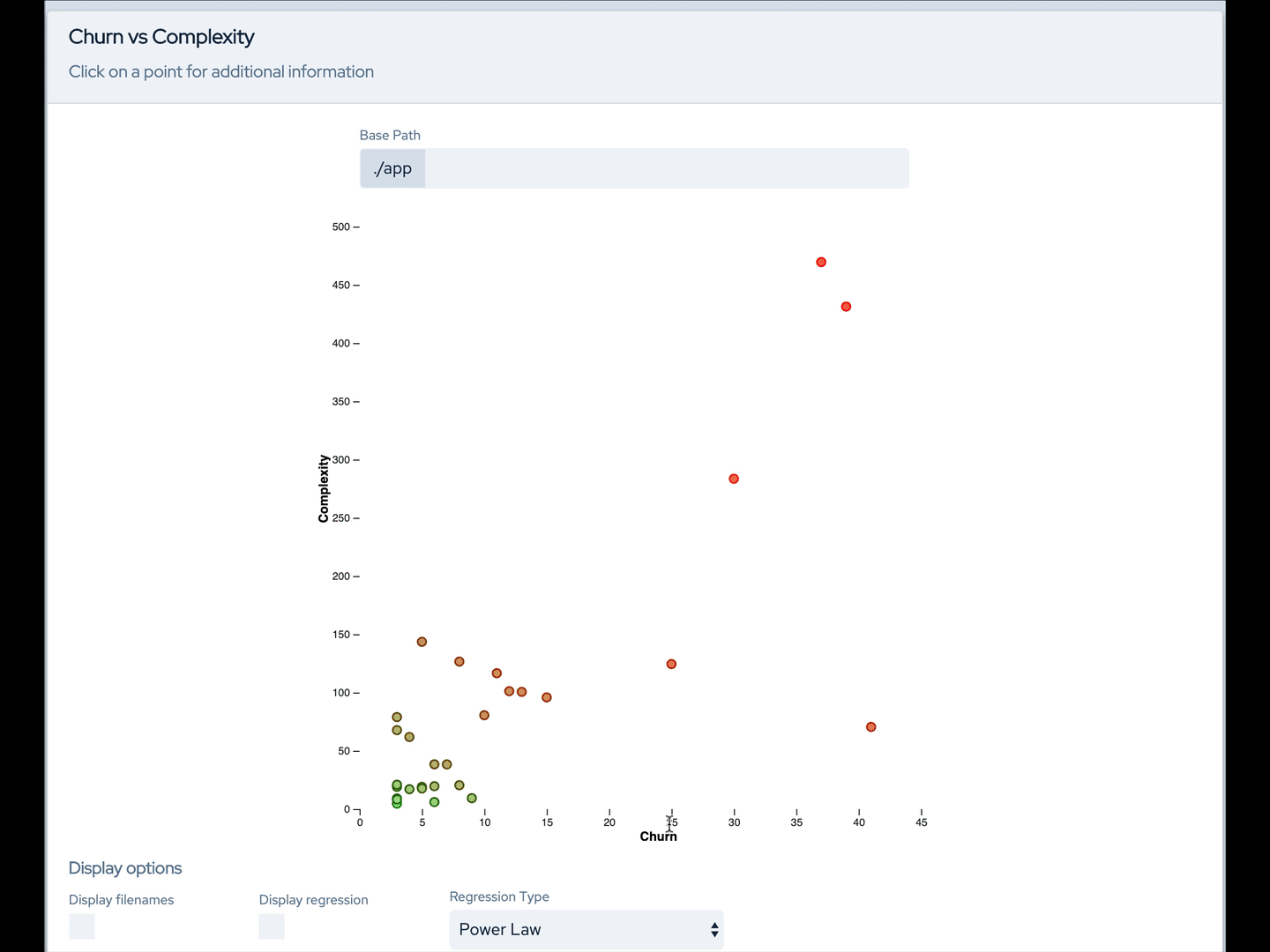README.md in attractor-0.6.1 vs README.md in attractor-1.0.0
- old
+ new
@@ -1,8 +1,8 @@
# Attractor  <img src="https://user-images.githubusercontent.com/4352208/65411858-3dc84200-ddee-11e9-99b6-c9cdbeb533c5.png" width="32">
-
+
Many authors ([Michael Feathers](https://www.agileconnection.com/article/getting-empirical-about-refactoring), [Sandi Metz](https://www.sandimetz.com/blog/2017/9/13/breaking-up-the-behemoth)) have shown that an evaluation of churn vs complexity of files in software projects provide a valuable metric towards code quality. This is another take on the matter, for ruby code, using the `churn` and `flog` projects.
## Installation
@@ -32,10 +32,14 @@
Or shorter:
$ attractor report -p app/models
+Check javascript:
+
+ $ attractor report -p app/javascript -t js
+
Watch for file changes:
$ attractor report -p app/models --watch
Serve at http://localhost:7890:
@@ -54,15 +58,17 @@
Print a simple output to console:
$ attractor calc
$ --file_prefix|-p app/models
+ $ --type|-t rb|js
$ --watch|-w
Generate a full report
$ attractor report
$ --file_prefix|-p app/models
+ $ --type|-t rb|js
$ --watch|-w
Serve the output on http://localhost:7890
$ attractor serve